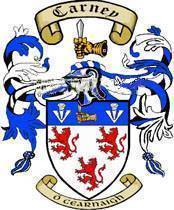| # |
Notes |
Linked to |
| 1651 |
2 _PREF Y | Family: Sir Thomas DE NORMANVILLE / (F7051)
|
| 1652 |
2 _PREF Y | Family: / Alice De ST. PHILIBERT (F7052)
|
| 1653 |
2 _PREF Y | Family: Sir Hugh Baron De ST. PHILIBERT / Alice (F7053)
|
| 1654 |
2 _PREF Y | Family: Hugh De ST. PHILIBERT / Eufemia (F7054)
|
| 1655 |
2 _PREF Y | Family: Hugh De ST. PHILIBERT / (F7055)
|
| 1656 |
2 _PREF Y | Family: Hugh De ST. PHILIBERT / (F7056)
|
| 1657 |
2 _PREF Y | Family: Sir Robert DE IRELAND / (F7057)
|
| 1658 |
2 _PREF Y | Family: John BRAYBROOK / (F7059)
|
| 1659 |
2 _PREF Y | Family: Edward II King Of ENGLAND / (F7060)
|
| 1660 |
2 _PREF Y | Family: Earl Of Kent Edmund PLANTAGENET, Earl Of Kent / (F7061)
|
| 1661 |
2 _PREF Y | Family: Sir Simon LE BIGOD / (F7062)
|
| 1662 |
2 _PREF Y | Family: / Agnes DE LUSIGNAN (F7063)
|
| 1663 |
2 _PREF Y | Family: / Blanche DE JOIGNY (F7064)
|
| 1664 |
2 _PREF Y | Family: / Marguerite DE LUSIGNAN (F7065)
|
| 1665 |
2 _PREF Y | Family: / Maud LONGESPEE (F7067)
|
| 1666 |
2 _PREF Y | Family: Lord Gerard DE FURNIVAL, Lord Of Caldecott / Joan DE MORVILLE (F7068)
|
| 1667 |
2 _PREF Y | Family: / Christiana DE FURNIVAL (F7069)
|
| 1668 |
2 _PREF Y | Family: Walter (Or William) DE MONTGOMERY / (F7070)
|
| 1669 |
2 _PREF Y | Family: Of Cubley Walter DE MONTGOMERY, Of Cubley / (F7071)
|
| 1670 |
2 _PREF Y | Family: / Eleanor DE HOLAND (F7072)
|
| 1671 |
2 _PREF Y | Family: Of Cubley William DE MONTGOMERY, Of Cubley / (F7073)
|
| 1672 |
2 _PREF Y | Family: Nn. DE MONTGOMERY / (F7074)
|
| 1673 |
2 _PREF Y | Family: Of Cubley William DE MONTGOMERY, Of Cubley / (F7075)
|
| 1674 |
2 _PREF Y | Family: / Comtesse De Provence Beatrice BERENGER, Comtesse De Provence (F7076)
|
| 1675 |
2 _PREF Y | Family: Baron Chilham Richard FITZROY, Baron Chilham / (F7077)
|
| 1676 |
2 _PREF Y | Family: Earl Of Norfolk Thomas PLANTAGENET, Earl Of Norfolk / (F7078)
|
| 1677 |
2 _PREF Y | Family: / Matilda DE BEAUCHAMP (F7079)
|
| 1678 |
2 _PREF Y | Family: Sir William DE GERNON / Beatrix DE THEYDON (F7080)
|
| 1679 |
2 _PREF Y | Family: Henry DE THEYDON / (F7081)
|
| 1680 |
2 _PREF Y | Family: Ralph DE GERNON / Miss BASSET (F7082)
|
| 1681 |
2 _PREF Y | Family: / Joan FITZJOHN (F7085)
|
| 1682 |
2 _PREF Y | Family: Godfrey FOLJAMBE / (F7086)
|
| 1683 |
2 _PREF Y | Family: Godfrey FOLJAMBE / Margaret DE VILLIERS (F7093)
|
| 1684 |
2 _PREF Y | Family: Sir Godfrey FOLJAMBE / Avena IRELAND (F7098)
|
| 1685 |
2 _PREF Y | Family: Thomas FOLJAMBE / Alice DARLEY (F7099)
|
| 1686 |
2 _PREF Y | Family: Thomas FOLJAMBE / Alice DE FURNIVAL (F7100)
|
| 1687 |
2 _PREF Y | Family: Sir Thomas FOLJAMBE / Margaret DE GERNON (F7101)
|
| 1688 |
2 _PREF Y | Family: John FOLJAMBE / Margaret LUTTERELL (F7102)
|
| 1689 |
2 _PREF Y | Family: Henry FOLJAMBE / Eleanor FITZHERBERT (F7103)
|
| 1690 |
2 _PREF Y | Family: Count Of Flanders Thomas II DE SAVOIE, Count Of Flanders / (F7104)
|
| 1691 |
2 _PREF Y | Family: / Sarah FURNIVAL (F7105)
|
| 1692 |
2 _PREF Y | Family: / Hawise FITZ GEOFFREY (F7108)
|
| 1693 |
2 _PREF Y | Family: Robert DE BEAUCHAMP / (F7109)
|
| 1694 |
2 _PREF Y | Family: Roger DE SALMESBURY / Margaret FITZWALTER (F7111)
|
| 1695 |
2 _PREF Y | Family: William DE NOTTON / Cecily DE BARTON (F7112)
|
| 1696 |
2 _PREF Y | Family: Nicholas MONTGOMERY / Margaret FOLJAMBE (F7240)
|
| 1697 |
2 _PREF Y | Family: Sir Ralph DE GERNON / (F10047)
|
| 1698 |
2 _PREF Y | Family: / Joan (Jane) DE HOLAND (F11435)
|
| 1699 |
2 _PREF Y | Family: Robert DE HOLAND, 1st Baron Holand / (F11445)
|
| 1700 |
2 _PREF Y | Family: / Joan HOLLAND (F11446)
|

